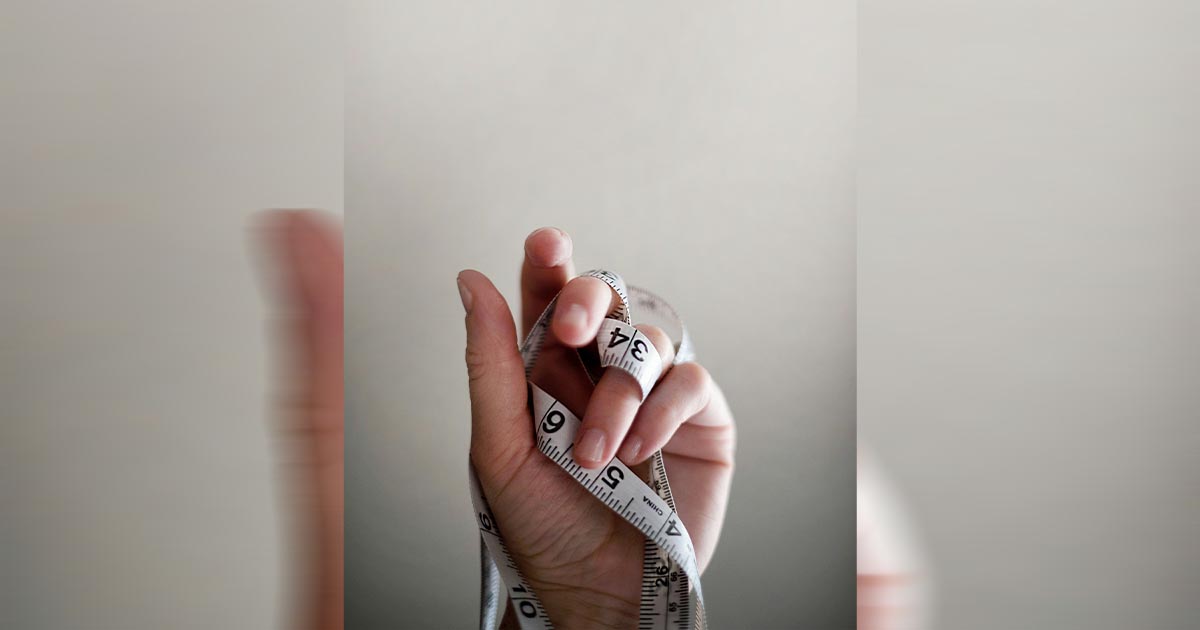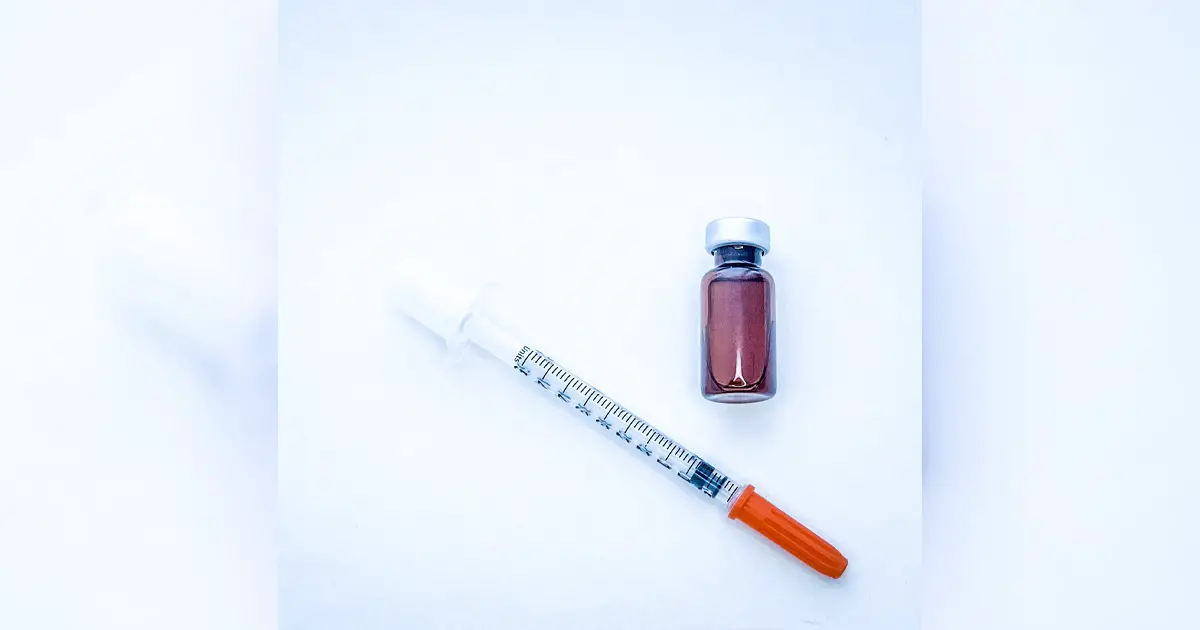Can I drink coffee while on this medication? Beyond this primary inquiry, we’ll also address related questions to provide comprehensive insights into the interaction between coffee consumption and semaglutide usage.
Table of Contents
ToggleWhat can I drink on semaglutide?
Semaglutide is a medication used to treat type 2 diabetes. When taking semaglutide, it’s important to maintain a healthy lifestyle and follow any dietary recommendations provided by your healthcare provider. Generally, there are no specific restrictions on what you can drink while taking semaglutide, but it’s essential to focus on staying hydrated and making healthy beverage choices.
Here are some general guidelines for beverages while taking semaglutide:
- Water: Staying hydrated is crucial, so water should be your primary beverage choice.
- Unsweetened beverages: Opt for unsweetened teas, herbal teas, and black coffee.
- Low-sugar or sugar-free drinks: If you prefer flavored beverages, choose options that are low in sugar or sugar-free, such as diet sodas or flavored sparkling water.
- Skim or low-fat milk: If you consume dairy, choose skim or low-fat milk over full-fat varieties to reduce saturated fat intake.
- Fresh fruit and vegetable juices: While these can be nutritious, be cautious of the natural sugar content, and try to limit your intake to small portions.
- Alcoholic beverages: If you choose to drink alcohol, do so in moderation and be mindful of how it affects your blood sugar levels. Opt for light beer, dry wines, or spirits mixed with calorie-free mixers.
Lastly, low-calorie or zero-calorie drinks such as diet soda or flavored sparkling water can be consumed in moderation. While they don’t contain sugar or calories, some artificial sweeteners may have an impact on insulin levels or gut health, so it’s wise to limit your intake and monitor how your body responds. Always consult with your healthcare provider or a registered dietitian for personalized guidance on managing your diet while taking semaglutide.
Can I drink coffee on semaglutide?

Understanding Semaglutide
Semaglutide is a medication often prescribed to individuals with type 2 diabetes to help control blood sugar levels. It belongs to a class of drugs known as glucagon-like peptide-1 (GLP-1) receptor agonists. Semaglutide works by mimicking the action of GLP-1, which stimulates insulin release and inhibits glucagon secretion, thereby reducing blood sugar levels.
The Role of Coffee in Diabetes Management
-
Effect on Insulin Sensitivity: Some research suggests that moderate coffee consumption may improve insulin sensitivity, which is beneficial for individuals with diabetes.
-
Potential Benefits: Coffee contains bioactive compounds such as chlorogenic acids and caffeine, which may have antioxidant and anti-inflammatory properties, potentially reducing the risk of developing type 2 diabetes.
Can I Drink Coffee on Semaglutide? While there isn’t a direct contraindication between coffee consumption and semaglutide usage, it’s essential to consider potential interactions or side effects.
Factors to Consider
-
Gastrointestinal Side Effects: Both semaglutide and coffee can cause gastrointestinal side effects such as nausea, vomiting, and diarrhea. Combining the two may exacerbate these symptoms in some individuals.
-
Caffeine Content: Coffee contains caffeine, which can affect blood sugar levels and may interact with medications. However, research on the specific interaction between caffeine and semaglutide is limited.
Recommendations
- Monitor Symptoms: If you decide to drink coffee while taking semaglutide, pay attention to any changes in symptoms or side effects. If you experience worsening gastrointestinal issues or changes in blood sugar levels, consult your healthcare provider.
- Moderation is Key: As with any dietary choice, moderation is crucial. Limit your coffee intake to moderate levels and consider factors such as caffeine sensitivity and individual tolerance.
Does caffeine interfere with semaglutide?

While there isn’t a clear-cut answer of “yes” or “no,” current research suggests that caffeine might interfere with semaglutide in a couple of ways:
Hydration: Caffeine is a diuretic, meaning it increases urine production, which can lead to dehydration. Dehydration can affect the absorption of semaglutide and therefore lessen its effectiveness.
Blood sugar: Caffeine can raise blood sugar levels slightly in some people. This could potentially counter the blood sugar-lowering effects of semaglutide and increase the risk of hypoglycemia (low blood sugar).
Coffee specifically: While caffeine alone likely doesn’t directly affect semaglutide’s mechanism, other compounds in coffee like chlorogenic acids might slightly impede semaglutide’s absorption. Taking your shot at least 60 minutes before or after your morning coffee might optimize absorption.
Here’s what’s important to remember:
- The research is currently ongoing and not conclusive. More studies are needed to fully understand the extent of any potential interaction.
- Individual responses vary. Some people might be more sensitive to the effects of caffeine than others.
- It’s crucial to talk to your doctor. They can assess your individual situation and advise you on how to manage your caffeine intake alongside semaglutide.
Therefore, it’s best to:
- Inform your doctor about your caffeine intake. This helps them understand your overall health profile and provide personalized advice.
- Consider moderating your caffeine intake. This might be especially important if you experience dehydration or blood sugar fluctuations.
- Maintain a consistent routine. If you choose to continue consuming caffeine, try to take your semaglutide shot and consume caffeine at consistent times of day.
Always consult with your doctor for personalized guidance and treatment.
How do you maximize semaglutide results?
To maximize the results of semaglutide, a medication used to treat type 2 diabetes and obesity, it’s important to follow these guidelines:
- Follow the Prescribed Dosage: Take semaglutide exactly as prescribed by your healthcare provider. Do not increase or decrease the dosage without consulting your doctor.
- Consistent Administration: Take semaglutide at the same time each day to maintain consistent levels in your body. This helps optimize its effectiveness.
- Healthy Diet: Follow a healthy, balanced diet rich in fruits, vegetables, lean proteins, and whole grains. Avoid excessive consumption of high-calorie, processed foods, and sugary beverages.
- Regular Exercise: Incorporate regular physical activity into your routine. Aim for at least 30 minutes of moderate-intensity exercise most days of the week. Consult with your healthcare provider before starting any new exercise program.
- Monitor Blood Sugar Levels: Keep track of your blood sugar levels regularly as directed by your healthcare provider. This helps ensure that semaglutide is effectively managing your diabetes.
- Maintain a Healthy Lifestyle: Avoid smoking and limit alcohol consumption. Get adequate sleep and manage stress effectively.
- Follow-Up Appointments: Attend regular follow-up appointments with your healthcare provider to monitor your progress and make any necessary adjustments to your treatment plan.
- Be Patient: It may take some time to see significant results with semaglutide. Be patient and consistent with your treatment plan.
- Report Any Side Effects: If you experience any side effects while taking semaglutide, such as nausea or vomiting, inform your healthcare provider promptly. They may be able to adjust your dosage or provide recommendations to help minimize side effects.
- Educate Yourself: Stay informed about semaglutide and its effects by asking questions and seeking information from reliable sources, such as your healthcare provider or reputable medical websites.
By following these guidelines and working closely with your healthcare provider, you can maximize the effectiveness of semaglutide in managing your condition.
What should you avoid while taking semaglutide?
When taking semaglutide, you should avoid:
- Alcohol: Drinking alcohol excessively can increase the risk of developing low blood sugar (hypoglycemia) while on semaglutide.
- Other GLP-1 Receptor Agonists: Taking semaglutide along with other medications in the same class (GLP-1 receptor agonists) may increase the risk of side effects.
- Insulin and Insulin Secretagogues: Combining semaglutide with insulin or insulin secretagogues (medications that increase insulin production) may also increase the risk of hypoglycemia.
- Certain Medications: Some medications may interact with semaglutide, so it’s essential to inform your healthcare provider about all the medications you are taking, including prescription, over-the-counter, and herbal supplements.
- High-Fat Meals: Consuming high-fat meals may delay the absorption of semaglutide and reduce its effectiveness in lowering blood sugar levels.
Always consult with your healthcare provider or pharmacist for guidance on the appropriate use of semaglutide and potential interactions with other medications or substances.
What not to mix with semaglutide?
Semaglutide is a medication used to treat type 2 diabetes and obesity. Some certain substances and medications should not be mixed with semaglutide due to potential interactions or adverse effects. Here are some examples:
- Insulin: Combining semaglutide with insulin can increase the risk of hypoglycemia (low blood sugar). If insulin is required along with semaglutide, it should be done under medical supervision with appropriate dose adjustments.
- Oral medications for diabetes: Certain oral diabetes medications, such as sulfonylureas like glimepiride or glipizide, may increase the risk of hypoglycemia when taken with semaglutide.
- Orlistat: Orlistat, a medication used for weight loss, can reduce the absorption of fat-soluble vitamins. Since semaglutide can affect gastric emptying, combining it with orlistat may further alter the absorption of nutrients.
- Warfarin: Semaglutide may affect the activity of warfarin, a blood thinner, potentially increasing the risk of bleeding. Close monitoring of blood clotting parameters may be necessary if these medications are used together.
- Immunosuppressants: There may be interactions between semaglutide and immunosuppressive medications like cyclosporine or tacrolimus. This could affect the metabolism or effectiveness of either medication.
- Other GLP-1 receptor agonists: Concurrent use of multiple GLP-1 receptor agonists, such as liraglutide or exenatide, may increase the risk of gastrointestinal side effects like nausea, vomiting, or diarrhea.
It’s crucial to always consult with a healthcare provider or pharmacist before mixing semaglutide with any other medications, supplements, or substances to ensure safety and effectiveness.
How to speed up weight loss on semaglutide?

To accelerate weight loss while taking semaglutide, it’s essential to adhere closely to your prescribed dosage and follow your healthcare provider’s instructions diligently. Semaglutide works by mimicking the effects of a hormone called GLP-1, which helps regulate appetite and food intake. Maintaining a consistent routine with your medication, including taking it at the same time each day, can optimize its effectiveness in controlling hunger and aiding weight loss.
In addition to medication adherence, focusing on a balanced and nutritious diet is crucial for enhancing weight loss outcomes. Aim to consume plenty of fruits, vegetables, lean proteins, and whole grains while minimizing processed foods, sugary snacks, and high-fat items. Consider working with a registered dietitian to develop a personalized meal plan that aligns with your weight loss goals and supports your overall health.
Regular physical activity plays a key role in accelerating weight loss and improving metabolic health. Incorporate both aerobic exercises, such as walking, jogging, or cycling, and strength training activities into your weekly routine. Aim for at least 150 minutes of moderate-intensity aerobic exercise or 75 minutes of vigorous-intensity exercise per week, along with muscle-strengthening activities on two or more days. Consult with a fitness professional to design a workout plan that suits your fitness level and preferences while complementing your semaglutide treatment.
How long does it take to lose 10 pounds on semaglutide?
The timeframe for losing 10 pounds while taking semaglutide can vary significantly depending on various factors such as individual metabolism, diet, exercise habits, and dosage of the medication. Semaglutide is a prescription medication primarily used to treat type 2 diabetes, but it has also shown promise in aiding weight loss. Clinical trials have demonstrated that participants using semaglutide experienced significant weight loss over several months of treatment, typically ranging from 5% to 15% of their initial body weight. However, it’s important to note that there is no fixed timeline for losing 10 pounds with semaglutide, as results can differ from person to person.
While some individuals may see noticeable weight loss within a few weeks of starting semaglutide treatment, others may require several months to achieve the desired 10-pound weight loss goal. Alongside taking the medication, incorporating healthy lifestyle changes such as following a balanced diet and engaging in regular physical activity can enhance the effectiveness of semaglutide for weight loss. It’s essential to work closely with a healthcare provider to determine the most suitable dosage and monitor progress regularly to ensure safe and effective weight loss while using semaglutide.
In addition to aiding weight loss, semaglutide can also provide other health benefits such as improved glycemic control and reduced risk of cardiovascular events for individuals with type 2 diabetes. However, it’s crucial to approach weight loss with semaglutide as part of a comprehensive treatment plan that includes dietary modifications, exercise, and behavioral changes to achieve sustainable results. As with any medication, it’s essential to follow the prescribed dosage and guidelines provided by a healthcare professional to maximize the benefits and minimize potential risks associated with semaglutide treatment for weight loss.
Can I lose 20 pounds in a month with semaglutide?
Losing 20 pounds in a month with semaglutide is generally not considered feasible or safe. While semaglutide has shown efficacy in promoting weight loss, the rate of weight loss is typically gradual and varies from person to person. Rapid weight loss of 20 pounds in a month can put strain on the body and may lead to adverse health effects such as nutrient deficiencies, muscle loss, and metabolic imbalances. Additionally, such rapid weight loss is often unsustainable and may result in regaining the lost weight once the treatment is discontinued. It’s important to approach weight loss with semaglutide under the guidance of a healthcare professional and focus on making sustainable lifestyle changes for long-term success.
The recommended rate of weight loss is typically 1-2 pounds per week, which equates to approximately 4-8 pounds per month. Attempting to lose weight at a faster pace may increase the risk of negative health consequences and undermine the effectiveness of semaglutide treatment. It’s essential to set realistic goals and prioritize overall health and well-being rather than pursuing drastic weight loss in a short period.
Instead of aiming for rapid weight loss, individuals using semaglutide for weight management should focus on making gradual, sustainable changes to their diet, exercise, and lifestyle habits. Incorporating a balanced diet, regular physical activity, adequate hydration, and sufficient sleep can all contribute to achieving and maintaining a healthy weight over time. Working closely with a healthcare provider can help establish a personalized treatment plan that aligns with individual goals and promotes safe, effective weight loss with semaglutide.
What is safe to eat on Ozempic?

When using Ozempic (semaglutide) for diabetes management or weight loss, it’s essential to maintain a balanced and nutritious diet to support overall health and maximize the benefits of the medication. Here are some foods that are generally considered safe to eat while taking Ozempic:
- Lean Proteins: Include sources of lean protein in your diet such as skinless poultry, fish, tofu, beans, lentils, and lean cuts of beef or pork. These foods can help you feel full and satisfied while providing essential nutrients without excessive calories or unhealthy fats.
- Non-Starchy Vegetables: Load up on non-starchy vegetables such as leafy greens, broccoli, cauliflower, bell peppers, cucumbers, tomatoes, and zucchini. These vegetables are low in calories and carbohydrates while rich in fiber, vitamins, and minerals, making them excellent choices for managing blood sugar levels and promoting weight loss.
- Whole Grains: Opt for whole grains instead of refined grains to increase fiber intake and improve blood sugar control. Choose whole-grain options like brown rice, quinoa, barley, oats, whole-wheat bread, and whole-grain pasta. These foods provide sustained energy and help keep you feeling full for longer periods.
- Healthy Fats: Incorporate sources of healthy fats into your diet such as avocados, nuts, seeds, and olive oil. These fats are heart-healthy and can help improve insulin sensitivity and promote satiety when consumed in moderation.
- Fruits: Enjoy fruits in moderation, focusing on lower glycemic options such as berries, apples, citrus fruits, and pears. These fruits provide essential vitamins, minerals, and antioxidants while containing fewer carbohydrates compared to higher-sugar fruits like bananas, grapes, and mangoes.
- Dairy or Dairy Alternatives: Choose low-fat or non-fat dairy products such as Greek yogurt, cottage cheese, and skim milk, or opt for dairy alternatives like unsweetened almond milk or soy milk. These options provide calcium, protein, and other essential nutrients without excessive saturated fat or added sugars.
- Hydration: Stay hydrated by drinking plenty of water throughout the day. Limit sugary beverages and opt for water, herbal tea, or sparkling water flavored with lemon or cucumber to quench your thirst without adding extra calories or carbohydrates.
It’s important to work with a healthcare provider or a registered dietitian to develop a personalized meal plan that meets your specific dietary needs and health goals while taking Ozempic. They can guide portion sizes, carbohydrate counting, and meal timing to optimize blood sugar control and support weight management. Additionally, be mindful of your individual response to certain foods and adjust your diet accordingly to maintain stable blood sugar levels and overall well-being.
Conclusion:
In conclusion, when considering your coffee habits while taking semaglutide, it’s crucial to exercise caution and remain mindful of potential interactions or side effects. Can I drink coffee on semaglutide? While there isn’t a definitive prohibition, it’s advisable to consult with your healthcare provider for personalized advice and guidance tailored to your specific health needs and circumstances.
Related article:
How long after taking terbinafine can I drink coffee? Answered!


